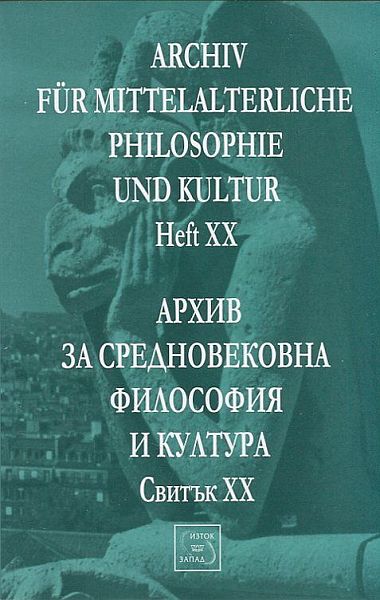
Канцона за любовта
Bulgarian translation of Canzona d'amore by Girolamo Benivieni .Translation from Latin Bogdana Paskaleva.
More...We kindly inform you that, as long as the subject affiliation of our 300.000+ articles is in progress, you might get unsufficient or no results on your third level or second level search. In this case, please broaden your search criteria.

Bulgarian translation of Canzona d'amore by Girolamo Benivieni .Translation from Latin Bogdana Paskaleva.
More...
Bulgarian translation of “Commento sopra una canzone d’amore di Girolamo Benivieni” (1486) by Giovanni Pico della Mirandola.Translation from Latin Bogdana Paskaleva.
More...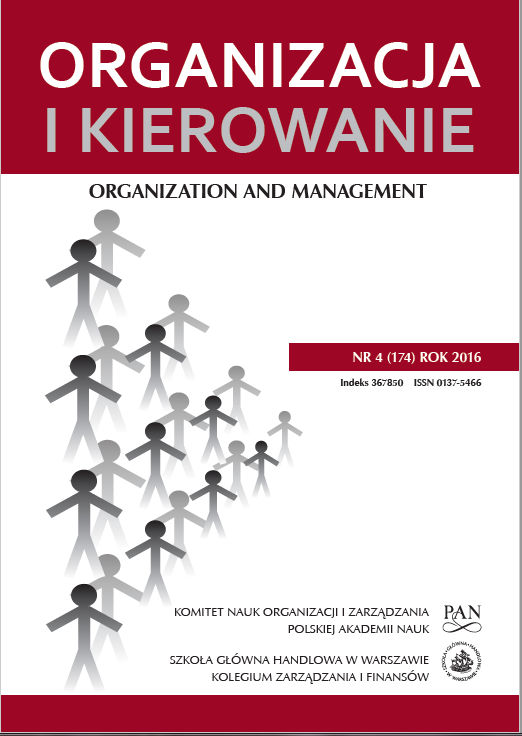
A publishing fashion to create new notions, to define such notions and to classify them without any apparent need, that is being observed nowadays (especially in the context of logistics and transportation), frequently results in generation of unnecessarily complex and inconsistent theories, which leads to numerous misunderstandings. This probably stems from intensive post-PhD efforts that are characterised by some domination of the will to develop a particular scientific domain over common sense. It often proves methodological gaps, that can also be understood to be a non-economic approach to science. The article aims at providing readers with some insights into different traps that may be encountered by individuals who follow the above-mentioned pattern.
More...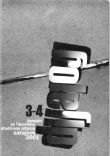
Kada Platon u Sofistu kaže da je “teško i mučno uloviti rod sofista (218 d) onda se on, ne htijući, negativno određuje od brzopletih i jednoznačnih interpretacija. Nije s toga čudno što, shvatajući kompleksnost (za)datog, sugeriše Teetetu da, ponajprije, okušaju metodu istraživanja na drugom lakšem predmetu... Bez obzira, dakle, što ih izrijekom naziva majstorima u protivurječenju (225b), šesti oblik u kojem se manifestuje sofističko umijeće, iako prijeporno, kao da protivurječi Platonovoj osnovnoj nakani.
More...
Renaissance conception of poetics is discussed in this paper with respect to emphasized importance of imagination and innovation in the process of creation of the work of art. The importance of imagination is directly opposed to the Aristotelian concept of imitation, and its primacy shows the Aristotle’s influence on Renaissance understanding of poetics, as well as its specific character made possible through the rejection of Aristotle. The development of an understanding of imagination as the origin of poetry in this paper is, in addition to the consideration of the concept of imitation, discussed with respect to the question of aesthetic pleasure, and to the issues of truth and morality.
More...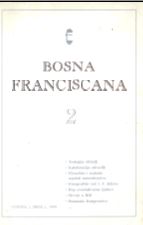
Usprkos golemoj i teško savladivoj poteškoći—slaboj očuvanosti izvorne građe — što se još uvijek postavlja kao prepreka konačnoj ocjeni franjevačke djelatnosti, osnovni sud, da su franjevci srednjovjekovnu Bosnu oplemenili zapadnoeuropskim kulturnim sadržajima, i pored toga ne može biti doveden u pitanje.
More...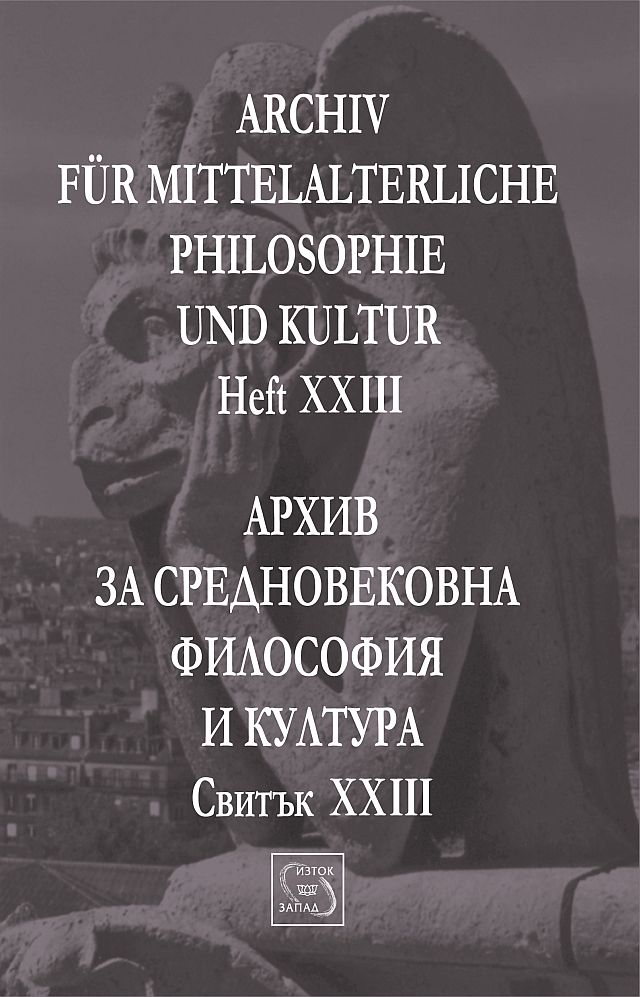
The aim of the text is to explore the translation and development of the concept of otium, traditionally referred to by Cicero, comparing it with its use by Francis Petrarch in his text The Life of Solitude (De Vita Solitaria). An ongoing reconstruction should include demonstrations of both similarities and dissimilarities of the concept’s use both in Ancient and Renaissance times, as seen in both authors’ texts. Petrarch has been called ‘solitude’s first historian’since his understanding of the life in solitude is not associated with the notion of isolation, but finds its base in the intellectual wonders of fruitful dialogue.
More...
A Bulgarian translation from the Latin original.
More...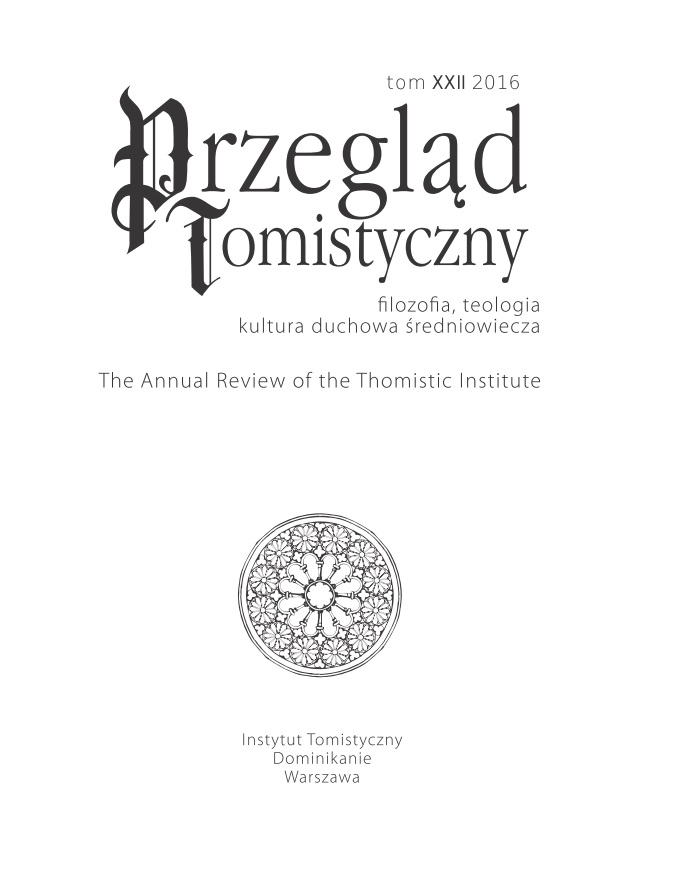
Marsilio Ficino, a Florentine philosopher of the fifteenth century, was the first in the Latin West to translate the whole Corpus Platonicum as well as many Neoplatonic works. He is known as the Renaissance propagator of Platonism. From this philosophy he drew many of his own concepts. According to Ficino, Christianity is the highest species in the genre of religion and, having assumed that there is an absolute, unchangeable truth, he went looking for it (and was certain that he found it) in pre-Christian texts (finding in them the expression prisca theologia). Th at is why Ficino’s project included the synthesis of pia philosophia with docta religio. Th is is the main thrust of Platonic Theology (the Florentine’s major work, written between 1469 and 1474): the author defends the immortality of the (individual) soul and postulates that the worship of God by the human soul can be expressed practically by uniting pious philosophy with learned religion. Five Questions Concerning the Mind is part of the opuscula theologica written by Ficino in 1476. In this short treatise, the philosopher asks whether humans can reach their essential goal — “boundless truth and goodness.” His considerations contain some Neo-Platonic elements as well as Scholastic components, including the concepts of appetitus naturalis and primum in aliquo genere, which can be found in the writings of Saint Th omas Aquinas (Ficino was a keen reader of Thomas’s works, especially Summa contra Gentiles). According to Ficino, it is the natural appetite that causes each human soul to strive for goodness and truth, and the search for these things must, at least sometimes, be fruitful. He posits that goals set by human nature itself cannot be unreachable. The human soul shares some powers with lower beings (namely, the sensitive part of the soul) and some with higher beings (the mind that contemplates, which is the noblest power). The human soul also has a power peculiar to itself — the discursive power (that is, reason). Reason can embrace the data provided by the senses or try to ignore them, but in both cases it is in a state of constant inquiry and can never be at rest. The author’s conclusion is that the human soul can indeed attain its end, but only after separation from the earthly body.
More...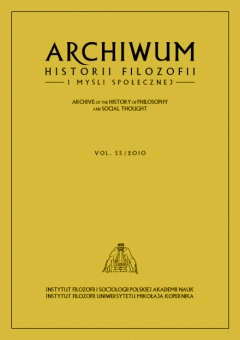
The article constitutes an attempt to answer one of the most important questions that arises during research into Russian religious philosophy namely to what degree it remained dependent on Marxism. The author endeavours to settle this matter by confronting and analysing the ideas of eminent Russian thinkers including Fyodorov, Berdyaev, Frank and Vysheslavtsev. On the one hand he reconstructs their arguments against Marxism, while on the other he searches for parallelisms amongst their conceptions – in particular the critique of capitalism formulated by them – and the Marxist stance. Ultimately he comes to the conclusion that the currents parallel to Marxist ones were ingeniously incorporated by them into conceptions which as an entirety remain in evident opposition to Marxism.
More...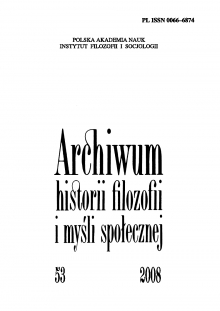
The main problem touched on in the article is the question of the relationship betwe¬en German romanticism and idealism, which occurred in the same time. Strictly spe¬aking, the basic task amounted to the answer to the problem whether this relationship me¬ant a similarity or a discrepancy. The considerations on the romantic idea of subjectivity contain many aspects becau¬se of the nature of the very concept of subjectivity. This concept refers to some episte¬mological issues, to the question of acting and creating, to the connections with the trans-cendental sphere, to nature, history and culture. There is a connection between the ro¬mantic idea of subjectivity and problems like the transcendental poetry. Therefore these issues are taken up. The conctusion which can be drawn from the considerations indicates that romanti¬cism and idealism should be separated. Although there are some parallels, the character of these currents is different. The fact that the creators of them had close contacts cannot change the final picture.
More...
The paper calls for redefinition of the relationship between humanities and science. Author analyzes the concept of studia humanitatis in the Renaissance philosophy, more precisely in two main streams of the Renaissance thought, humanism and neoplatonism, represented in this text by thesis of Francesco Petrarca, Marsilio Ficino and Giovanni Pico della Mirandola. Their arguments concerning the importance and validity of humanities, which focus on dignity of man, human freedom, free will and power of creation are more relevant and vital than ever.
More...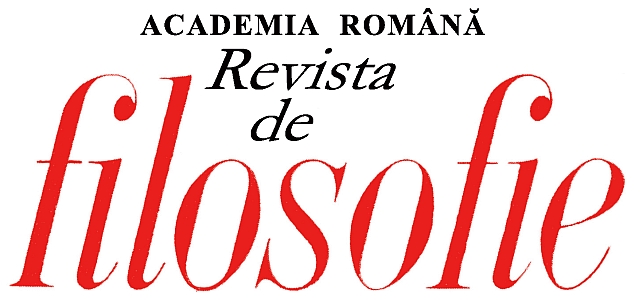
In the fourteenth centuryEngland, we can talk about the existence of associations or societies founded on thewell-known principles of the chivalric orders, but secretly operating, whose memberssought a way of discreet and favorable life for unfolding philanthropic anonymousactivities, and – in particular – a contemplative life, like a monk, based on prayer andmeditation. It is very possible that such “speculative societies” have contributed to theemergence of an environment conducive to the development of a way of life, andespecially of a speculative way of thinking, favoring the establishment of organizationalstructures that practiced Christian esotericism.
More...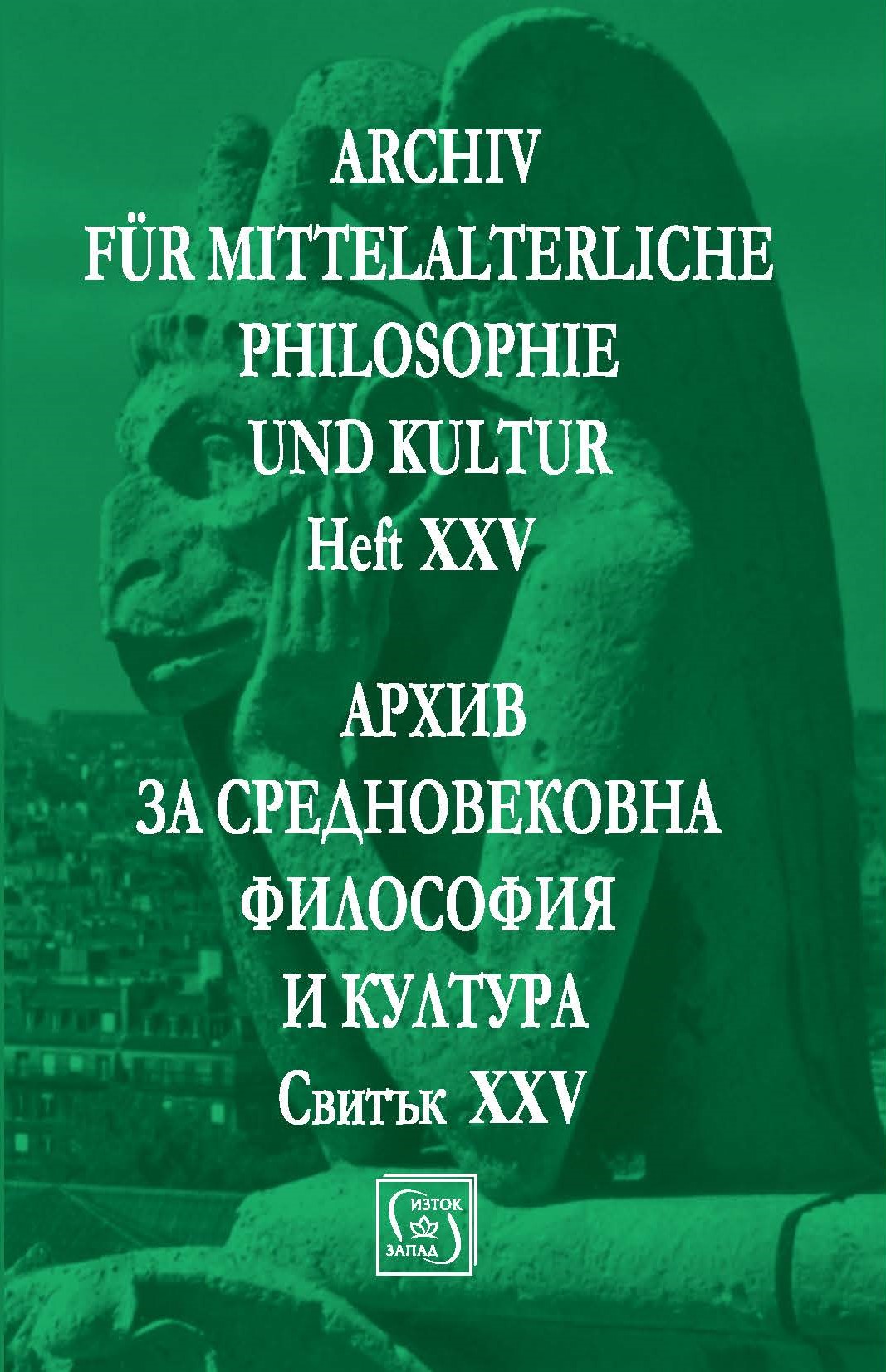
The paper is focused on the concept of learned ignorance in Nicholas of Cusa’s writings and the problem of its genealogy and formation. According to the hypothesis here developed, the concept of learned ignorance is closely linked to the traditional mathematical problem of squaring of circle. The text examines a series of sources for this mathematical problem starting with Aristotle’s Physics, and suggests that some of the Late-Medieval scholastic commentaries on the Physics served as direct sources for Cusa’s philosophical-theological treatises, as well for his mathematical writings. Cusa’s interpretation of Aristotle’s system of three principles of being is regarded here as one of the fundamental philosophical elements that might have exerted influence on building the concept of learned ignorance.
More...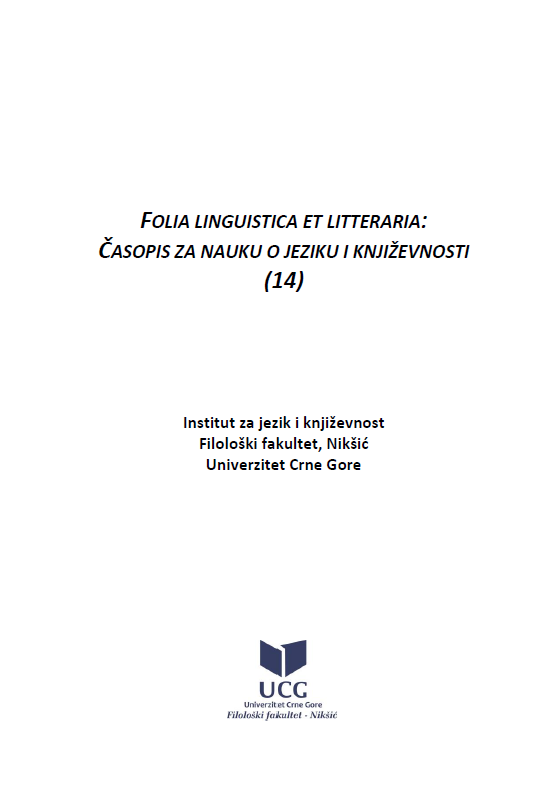
The paper focuses on different Renaissance concepts of man and his function within the society. The current conflict between political and personal values, legitimacy and morality, duty and conscience is most clearly seen in the two contrasted Renaissance definitions of man that Machiavelli and More provided, and that were later enriched with new insights by De las Casas and Montaigne, Hobbes and Rousseau.
More...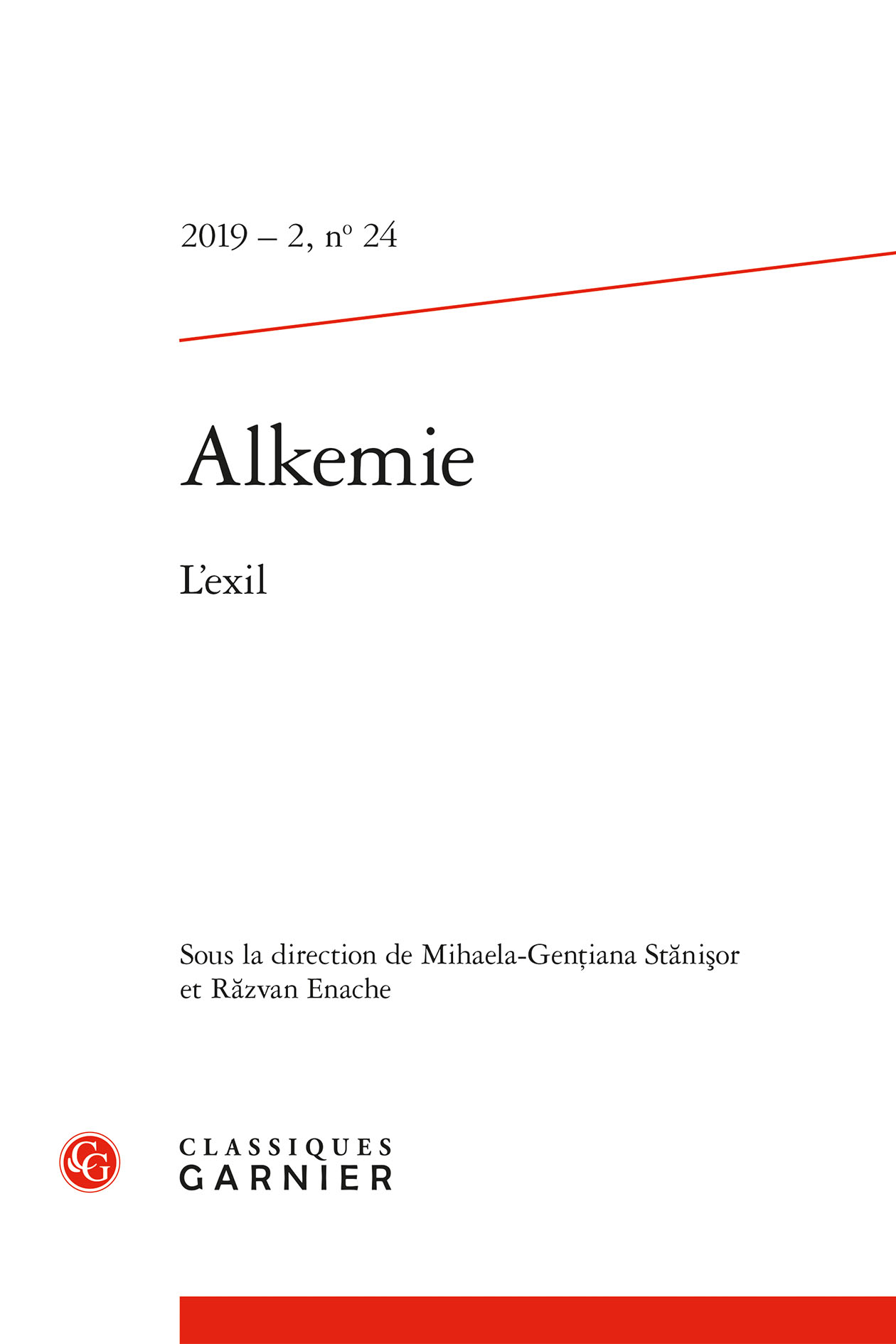
Le propos procède d’une formule de Dante s’adressant à un ami lui-même exilé et lui rappelant le caractère injuste de l’exil (Lettre III). Sur le fond de cette protestation du cœur et d’appel à la justice, l’auteur approfondit le poids d’un exil qui frappe tous, y compris ceux qui restent chez eux ou qui ont la liberté d’y retourner. Ce rappel d’une condition profondément moderne ouvre l’ensemble thématique de ce numéro de la revue. // This essay has as a starting point a formula of Dante addressing an exiled friend of him with the intention of evoking the unjust character of exile. (Letter III) On this emotional background, the author weights the implications of an exile that affects all of us, including those who stay at home or have all the liberty to return. This analysis of a very modern condition opens the main file of this issue of Alkemie.
More...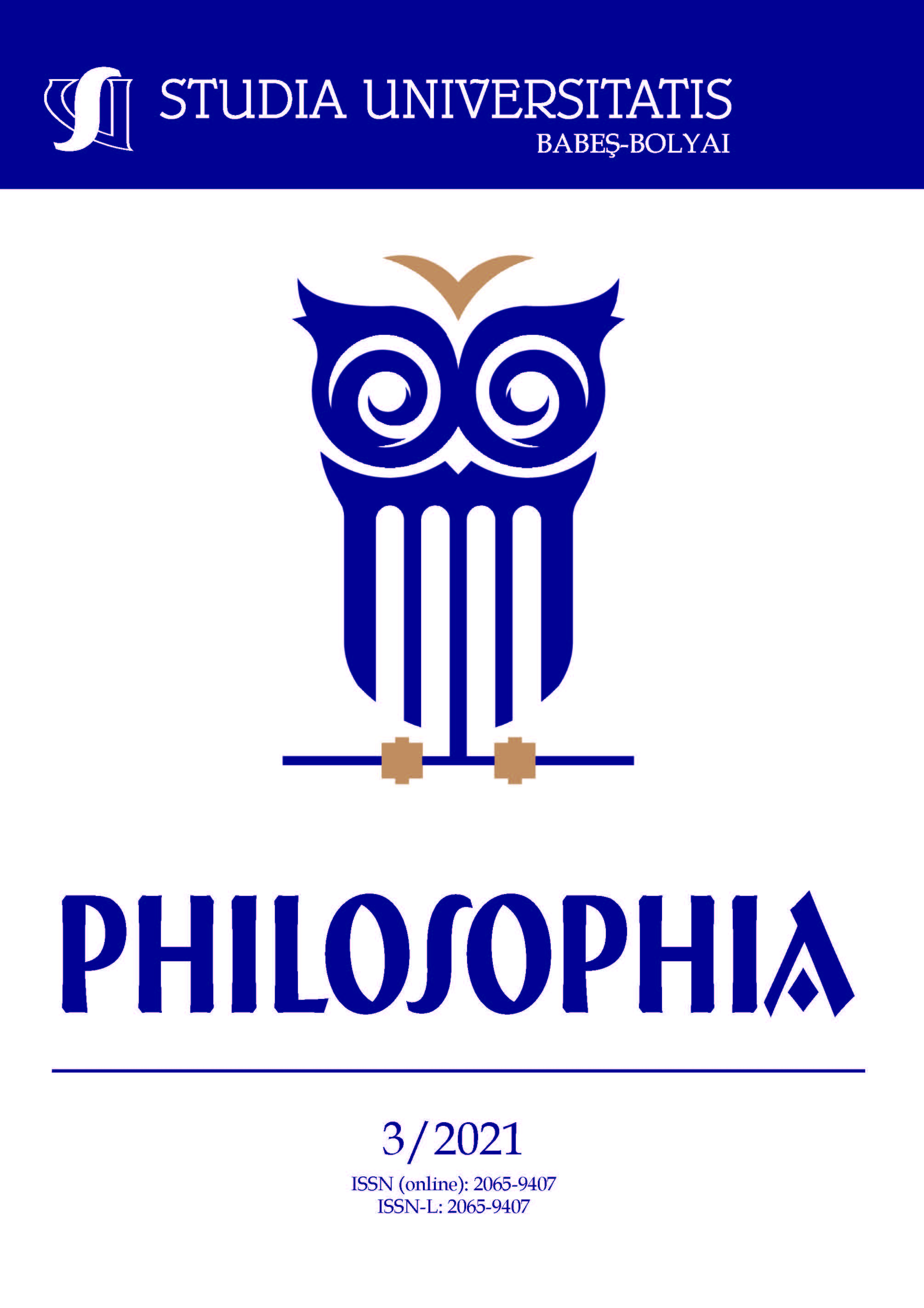
Elegance ranks low on the list of debated topics in philosophy, mainly because of the fleeting and mundane character of phenomena that it relies on for its existence. However, the rise of kinaesthesia as an important topic in today’s philosophical and phenomenological environment facilitates the inclusion of elegance in the canon of philosophical debates. This article reviews two important positions regarding elegance, that of Renaissance philosopher Baldassare Castiglione and of 20th Century realist phenomenologist Dietrich von Hildebrand. First, we underline three aspects of Castiglione’s concept of sprezzatura and showcase the significance and purpose of practicing elegance. This step is succeeded by a close look at von Hildebrand’s attachment to a realist phenomenological frame for understanding why he denies elegance the status of an ideal value. Last, we look at the connection between elegance and three ideas from a hybrid phenomenology from Husserl and Sheets-Johnstone. These connections form the basis for filling the significant gap between Castiglione’s Renaissance take on elegance and von Hildebrand’s realist perspective with a new phenomenological project regarding elegance.
More...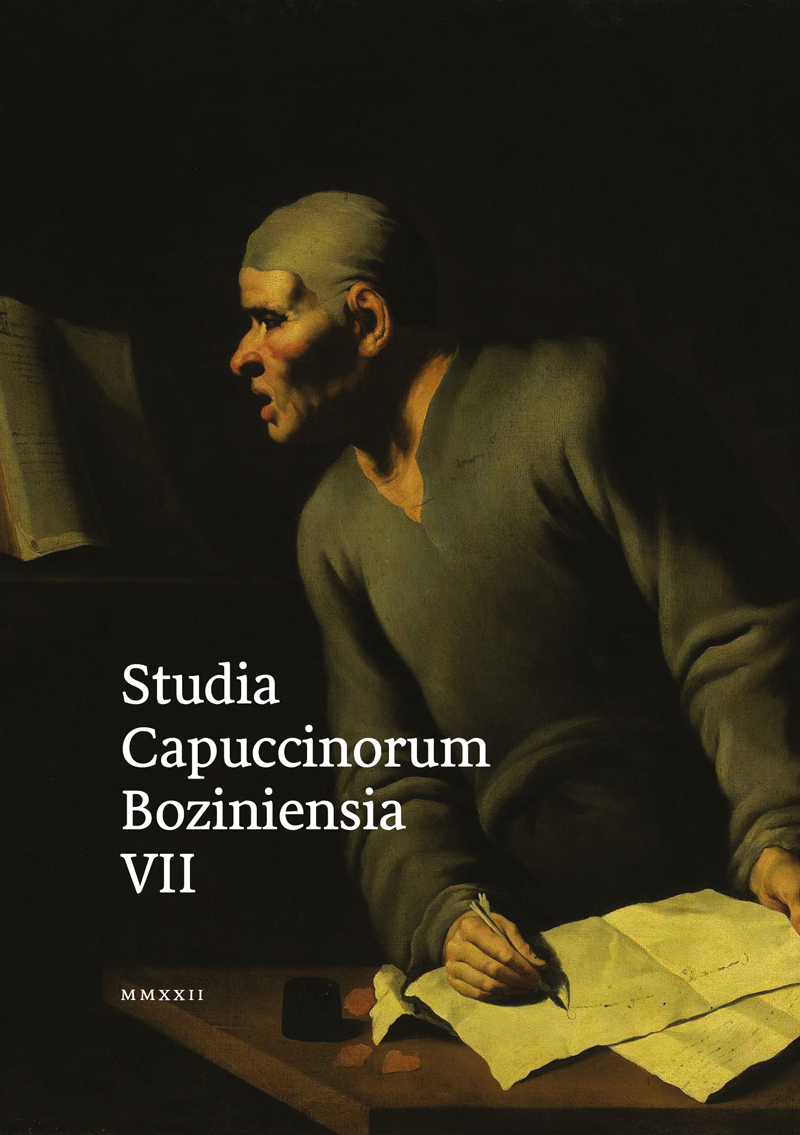
The study deals with apophatic theology, which in today's secular philosophical world, but also in theology, is experiencing something of a renaissance because it allows us to criticize our inadequacy in understanding God and, at the same time, brings us to the limits of the possibilities of knowledge. It is particularly concerned with the analysis of apophatic moments and the idea of annihilation, as discussed by the Capuchin Benedict of Canfield (1562 – 1611) in his Regula perfectionis, pointing out the affinities of thought with the works of Bonaventure, to whom the Capuchin reform returned in a special way, as its primary theological and philosophical authority. It also seeks to trace these apophatic moments in medieval and Renaissance Franciscan discourse.
More...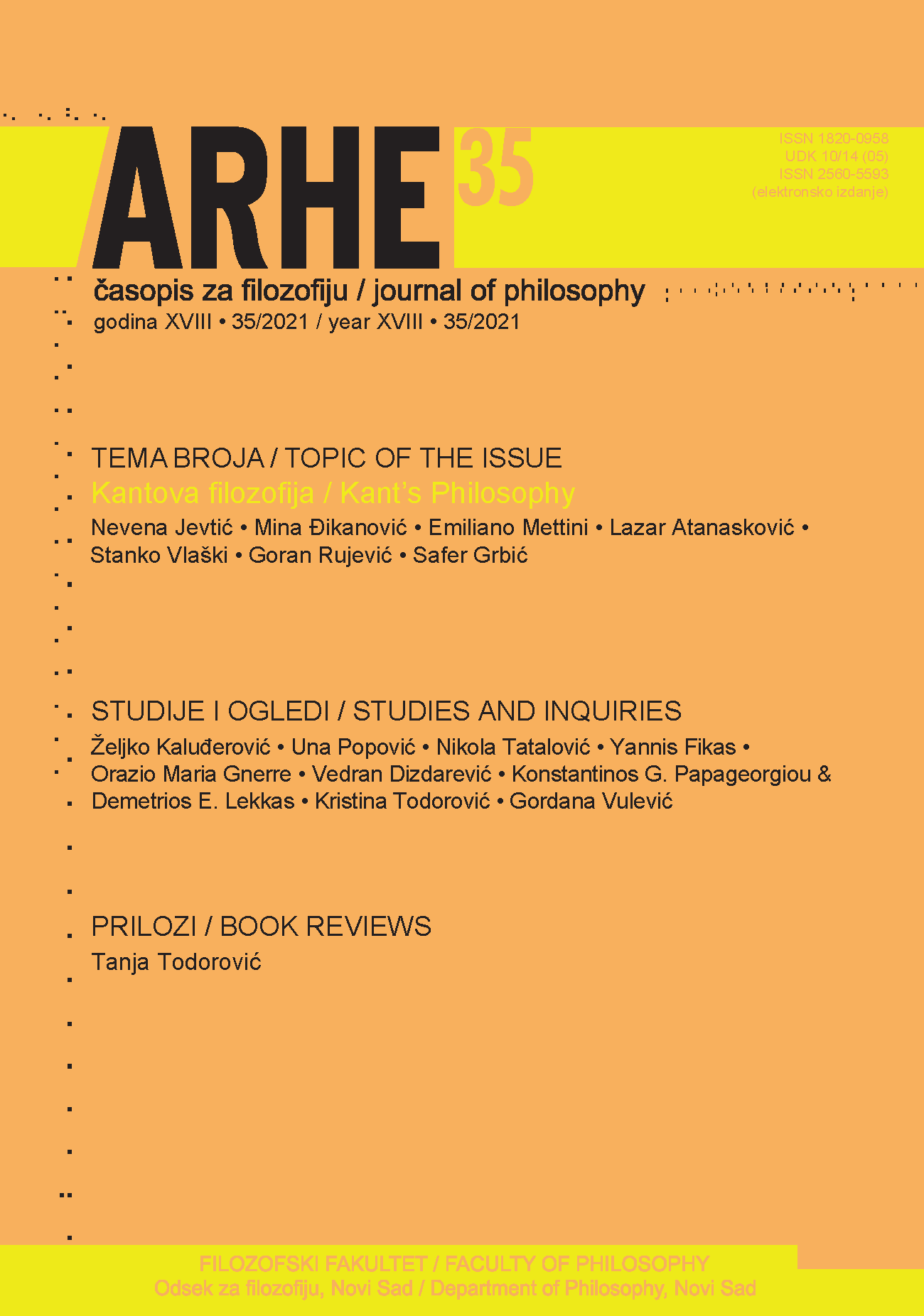
The aim of this paper is to present the Renaissance philosopher Giordano Bruno. According to Giordano Bruno, a human being is threefold composed of a body (soma), soul (psyche) and spirit (nous). Bruno’s philosophical theory on the harmonization of the soul with the mind (nous) and the body focuses mainly on the shaping of the psychological world through the development of imagination and memory. Bruno’s works deal with the “Art of Memory”, which elevates and gradually extends the consciousness of the disciple of wisdom from the earthly world to the extending boundaries of the starry sky. Bruno supports that humans who process the images of ideas through their imagination can approach the same archetypical ideas found within the divine mind and then embody them without distortions to the material world. These images constitute the best guides to the soul, because they elevate consciousness and facilitate its entry and access to the archetypical ideas found in the universal intellect. As these images dim the light, they prepare the eyes of the soul which are still wrapped in fog to gradually face the very same ideas.
More...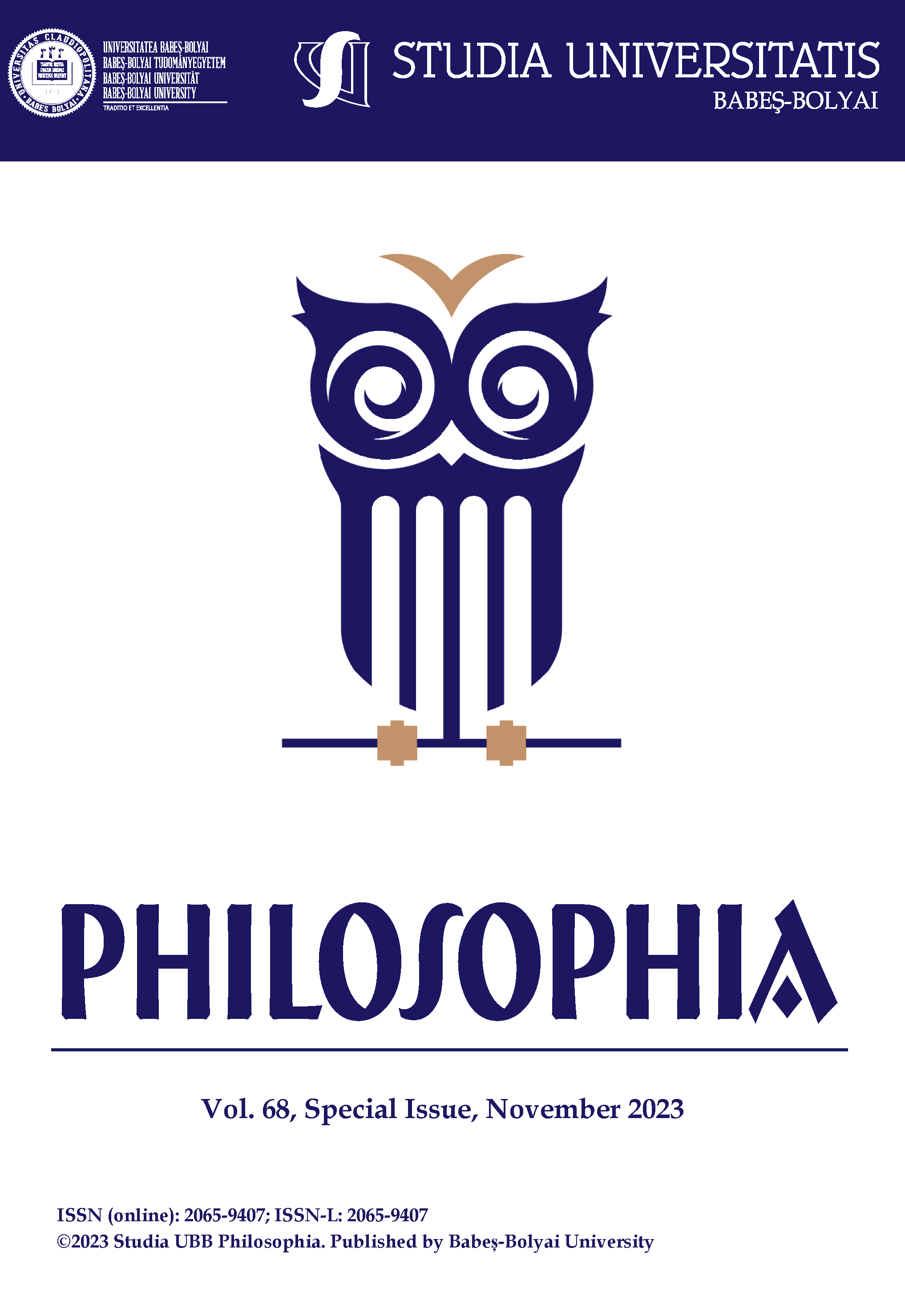
The concept of solitude, as elaborated by Petrarch in the treatise De vita solitaria, develops on the antagonistic structure of the concepts otium and negotium. These, in turn, contain notions and intellectual approaches found both in Latin Antiquity and in the Middle Ages, which attribute to loneliness a special dynamism by joining it with several other concepts such as: will, freedom and friendship. Each historical stage has a specific approach to the notions of otium and negotium, and in this sense Petrarch’s contribution can be considered significant, even if not entirely new, because he attempts a plenary approach to the idea of solitude.
More...